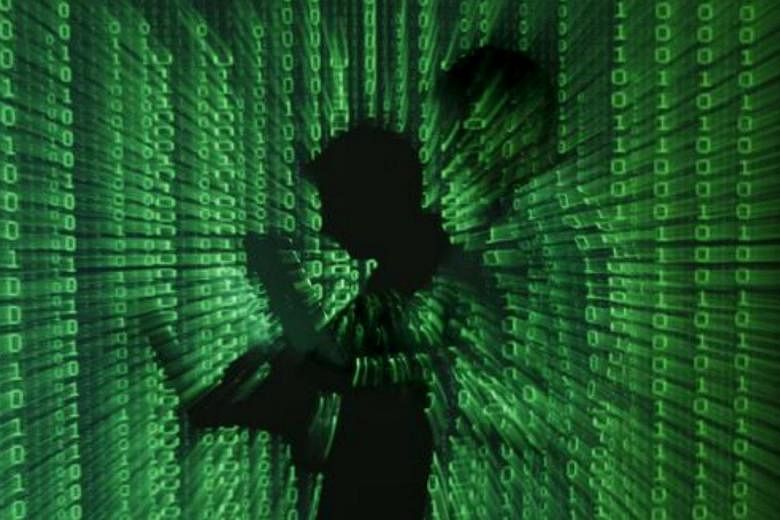LONDON (NYTIMES) - Russian hackers over the past 12 months have tried to attack the British energy, telecommunications and media industries, the government's top cybersecurity official said Tuesday (Nov 14) in a summary of a speech to be delivered Wednesday.
The warning, by Ciaran Martin, chief of the National Cyber Security Centre, is the strongest indication yet that Russian cyberattacks on Western governments and industries may be far more persistent than United States or British officials have previously acknowledged.
The speech also appeared to fit into a coordinated effort by the British government to publicly warn Russia that its efforts have been noticed. In a speech on Monday night, Prime Minister Theresa May addressed Russia directly. "We know what you are doing," May said. "And you will not succeed." She accused the Kremlin of "threatening the international order on which we all depend". Taken together, the two speeches are a sharp escalation in the public accusations around a conflict that has so far remained mostly in the shadows. Recent high-profile cyberattacks, however, have put new pressure on politicians to defend against the dangers.
The most spectacular example is the break into the computer systems of the American Democratic Party during the 2016 presidential campaign, an attack US intelligence agencies have attributed to Russian hackers.
But Britain this year was hit by the so-called WannaCry cyberattack, carried out by North Korea. It temporarily disabled the computer systems at several British hospitals, forcing the diversion of ambulances and the rescheduling of operations, before it was stopped by the lucky break of a lone amateur who successfully defused it.
US government officials also reportedly concluded over the summer that Russia had penetrated the computer networks of companies that operate nuclear power stations and other energy facilities, evidently gathering information and probing for vulnerabilities. No operations were disrupted.
The Russians also reportedly tried to break into the Irish electrical grid last summer, and British officials warned at the time that they appeared to be singling out British power companies as well. Russian hackers have successfully shut down power for a time in parts of Ukraine, which the Russians appear to treat as laboratory for testing such tactics.
British and U.S. intelligence officials say the Kremlin has deliberately cultivated a cottage industry of criminal hackers loosely affiliated with Russian intelligence agencies. Russian intelligence officials sometimes personally profit from the revenue from cybercrimes, and at other times they direct the hackers toward sabotage, espionage or other less lucrative objectives.
Among other victories, the Russians appear to have collaborated with a group calling itself Shadow Brokers to release a trove of cyberespionage tactics stolen from the computers of the National Security Agency, including some incorporated in the WannaCry virus that have now been used against Western industries and governments.
The summary released Tuesday of Martin's speech provided no details of the specific Russian attacks over the last year on British energy, telecommunications or media companies. Nor did the statement discuss any possible Russian efforts to use social media or cyberespionage to influence elections in Britain, as the Kremlin has recently sought to do in the United States and France.
But Martin said that fears of Russian election meddling have grown increasingly widespread throughout Europe. At a conference organised last month by the National Cyber Security Centre, he said, two-thirds of the member states of the European Union were concerned about potential Russian interference in their internal elections.

